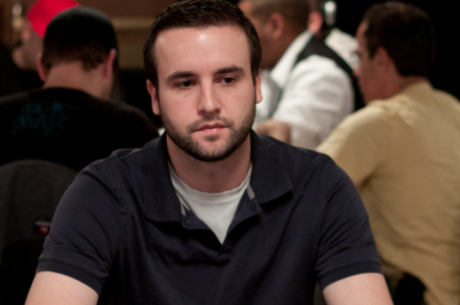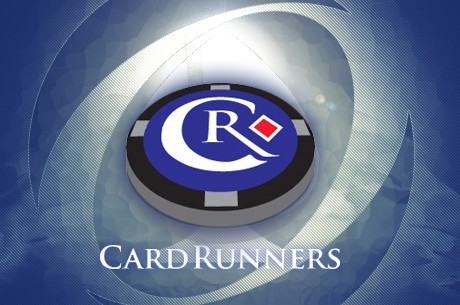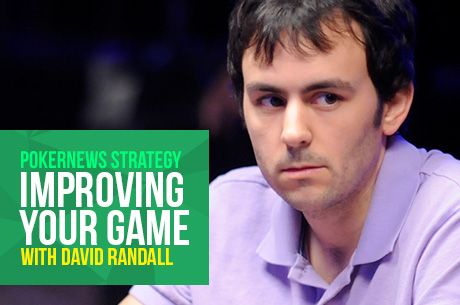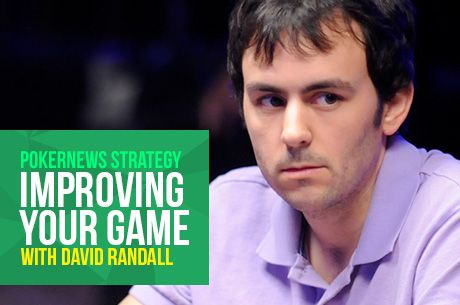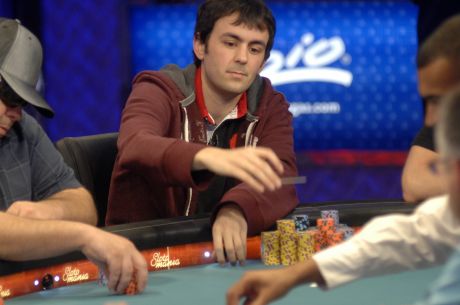Setting Goals: Correcting the Most Common Errors

As 2013 draws to a close, now is the time to start thinking about setting goals for next year. We set goals with the best of intentions, but often don’t give them a chance to succeed because we set the wrong types of goals.
The following are the most common errors I have encountered when working with poker players on their goals, and of course some advice to avoid making them yourself.
Too Many Goals
Quite simply, you want it all. When setting goals, poker players say they want to crush multi-table tournaments, beat $3/$6 online, get to Supernova Elite, learn mixed games and play more live tournaments.
A good goal will narrow your focus and give you something solid to hone in on when times are tough. When you wake up in the morning you need to be clear on exactly what to focus on in order to be successful. When you set too many goals, it creates a lot of ambiguity about what you should be doing with your time. This can make it easy to procrastinate as you waste time figuring out what you need to be doing with your time.
If you have one big, complex goal, such as making Supernova Elite for the first time, this needs to be your only major goal. If, however, you have smaller goals, it is easier to handle maybe two or three. For example, if you want to break into the $2/$4 level and improve your play on the turn, these are two goals that could be worked on alongside each other.
Not Setting Any Results Goals
Many of you already know how being overly focused on results is not ideal, however some players take this to an extreme and try to ignore results altogether. You can’t ignore results altogether — they do matter! Although, Gus Hansen is seemingly doing this right now at the nosebleed cash game tables where he is said to have lost over $13 million.
Players who think it’s bad to set results-oriented goals are really attempting, whether consciously or not, to avoid failure. When they set only quality-oriented goals, they decrease the chances that they’ll fail, but they also minimize their opportunity for success.
Ideally, players are setting both results and quality goals, because they work together. Results goals determine the end point and quality goals determine how to get there.
In poker, when you determine how much money you want to make, how many titles you want to win, or the stakes you want to play, you’re setting a trajectory for your game. You then need to define the quality goals you need to achieve to get there, such as specific tactical improvements, hiring a coach, and improved game selection. Ultimately, results goals create greater urgency to work on these quality-oriented goals, and that makes your success more likely.
An Over-Optimistic Starting Line
The time when goals are set can often bias your assessment of whether or not they are achievable. Too often poker players will set poker goals either when they are running well, or when they are making a fresh start like at the start of a new month, year, or after a long break from playing.
If you set goals when you are running well, then you create an expectation that this is how poker should be every time you play. For example, setting a goal to win $100,000 in a year after just winning a tournament. The problem is, of course, that you’re not taking variance into account, and when it inevitably moves in the other direction, it’ll be harder to handle not only because losing sucks, but your hopes and dreams have seemingly been taken away from you, too.
When you set goals after a break or during a fresh start like a new year, you are likely ignoring your previous weaknesses and failures. When you are looking so optimistically towards the future, you want to believe you’re capable of reaching your goals. But you unknowingly ignore past mistakes or weaknesses that must be corrected in order to achieve your goals. Being optimistic is a good thing of course, but not if it allows you to ignore the real challenges that exist and those that need to be conquered in order to be successful.
Setting goals at a time of high optimism is not inherently bad, but to make your goals more likely to be achieved, prepare for things to not go as planned. When setting your goals, identify the roadblocks that are likely to stand in your way. Spend some time before you get started figuring a plan to deal with problems if they do arise. This way, you’ll be prepared to handle what comes your way and thus more likely to stay on track and reach success.
Jared Tendler is a mental game coach to over 300 professional poker players and the author of The Mental Game of Poker 1 & 2. Both books are available in all good book stores, potentially free on audiobook and can even be bought with PokerStars FPPs.
Get all the latest PokerNews updates on your social media outlets. Follow us on Twitter and find us on both Facebook and Google+!

